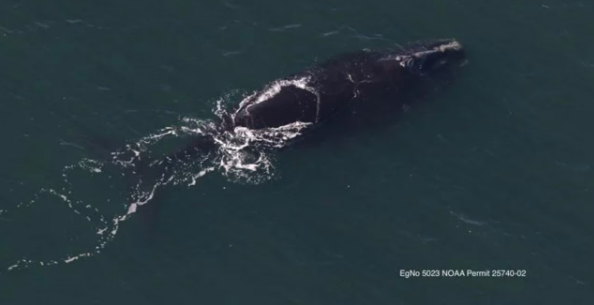||| FROM MASS LIVE |||
Strict vessel speed restrictions proposed to protect right whales in Nantucket Sound would be devastating to the island’s economy and way of life if implemented, Steamship Authority board member Rob Ranney told The Inquirer and Mirror this week.
“It would be crippling to Nantucket economically and probably pretty much any other way you can think of,” Ranney said Thursday. “They would probably set Nantucket back 50 years.”
Fast-ferry service would cease to exist for much of the year, leaving just two nearly three-hour Steamship Authority slow-boat trips a day to the island if vessel speed regulations proposed by the the National Oceanic and Atmospheric Administration became law, according to a study by the University of Massachusetts Donahue Institute commissioned by the town.
Under the proposed regulations, vessels 65 feet or longer would be limited to traveling at 10 knots or less through Nantucket Sound and other waters up and down the East Coast from Nov. 1 to May 30.
NOAA first proposed the regulations in 2022 as a way to protect the nearly extinct North Atlantic right whale from vessel strikes.
The town has vehemently opposed the regulations, more aggressively in the last several months as they’ve gained traction in Washington.
They are asking the federal government to exempt Nantucket Sound from the regulations given the essential nature of ferry service to the island.
The town contracted with the Donahue Institute to compile research on the economic impact the regulations would have this summer so it could be presented to federal officials.
Select Board chair Brooke Mohr said last Wednesday an economic impact of $100 million or more needs to be projected for the federal government to consider a regulatory change.
The town reached out to the institute because the federal government only estimated an impact in the tens of millions of dollars for Nantucket.
Findings from that study were presented to the Select Board and Nantucket Planning and Economic Development Commission at a joint meeting last week by assistant director of the institute, Rod Motamedi.
He said the institute’s research suggests hundreds of millions of dollars in revenue and trade would be at risk and thousands of lives would be affected.
“Everything would be harder. Going to visit family and friends off-island, medical care, all of those things that require the ability to come and go,” Motamedi said.
“The island has developed around these fast ferries for the last 30-some-odd years. Imagine there was a bridge and the bridge isn’t there anymore.”
**If you are reading theOrcasonian for free, thank your fellow islanders. If you would like to support theOrcasonian CLICK HERE to set your modestly-priced, voluntary subscription. Otherwise, no worries; we’re happy to share with you.**








Is there any reason the remaining North Atlantic right whales are not tagged with radio locators? Surely the “right” thing to do is to tag as many of the right whales as possible and have vessels equipped with some kind of radio frequency system that a sends out some version of, “Any whales nearby?” And any locator within range sends back a ping, which the system locates and allows vessel operators to take an alternative route. Perhaps the community of Nantucket could offer to pay for this whale location system and get to keep their high speed passenger ferry service without looking so much like obnoxiously entitled rich people?
On the other hand, maybe the end of high speed ferries and the community slowing and simplifying is exactly what Nantucket needs to save it’s soul?
“Tagging” whales is not helpful to their survival. In fact, it disturbs their feeding, socialization and other survival behaviors.
It’s not as simple as you suggest. Most “tagging” studies are done with devices that are designed to be released after a short period of time. How large a “tag” would be required to have sufficient battery capacity for continuous transmission for how long? How would it be implanted on a living whale?